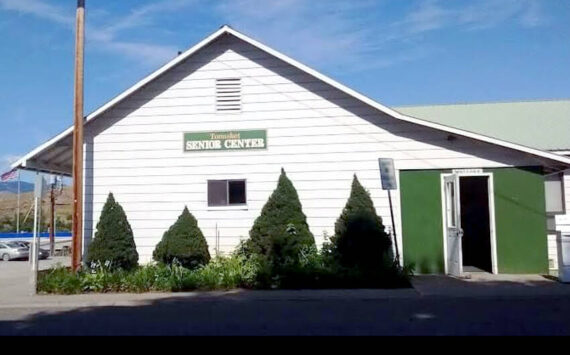TONASKET – Payge Fries, Health Information Manager, reported on implementation of the new ICD-10 at the Oct. 8 North Valley Hospital Board of Commissioners meeting.
The ICD-10 is the tenth revision of the International Statistical Classification of Diseases and Related Health Problems. ICD codes have been required for reimbursement of Medicare and Medicaid claims since 1979. The ICD-9 had 13,000 codes but the ICD-10 has around 68,000; providing greater specificity in reporting diagnoses.
“The ninth revision has been out since the 1970s, so there are lots of changes and lots more codes,” said Fries. “The government mandated it be put in place by October, so we started a group back in March to get it in place.”
According to the Medicaide.gov website, one of the biggest concerns in transitioning from the ICD-9 to the ICD-10 is there is no simple mapping or translation from one to the next; codes from the previous ICD don’t usually have one-to-one correspondence, but often require one-to-many, many-to-one, many-to-many or no correspondence at all.
Fries said one diagnosis in ICD 9 now has two and a half pages of diagnosis in the ICD-10.
“We have been working with coders to make sure they are prepared, to prevent denials of billings,” said Fries.
Electronic tables and crosswalks have been published to help clinicians and physicians chose the correct codes, including general equivalence tables by the National Center for Health Statistics.
“But if they are not specific enough, it will go unspecified, which Medicare will deny,” said Fries. “We are going through each unspecified billing and calling clinics to get the specifics. It is taking a lot of man hours.”
Fries said it costs the hospital a lot of money to re-bill after a claim has been denied, and it’s unknown upfront if something will be reimbursed when it’s re-billed.
She said additional employees are needed who have experience and training in billing and coding.
“It’s not something that’s easily taught,” said Fries, adding, “It’s pretty difficult right now, but we will get through it.”
“Payge Fries has championed this project to prepare our organization for this time of change reimbursement,” said NVH CEO Mike Zwicker, adding that the hospital might see the effects of decreased Days Cash on Hand over the next few weeks due to the conversion.
Chief Information Officer Kelly Carriker and Lori Sawyer, a former NVH RN who works in Health Information now, presented information on Quality Reports required by Medicade.
Sawyer said reports are run weekly with statistics on meeting core objectives based on computer usage.
“For example, we have to send a certain percentage of prescriptions by computer or fax to pharmacies,” said Sawyer. Another example she gave was the requirement of more than 5 percent of patients to access their medical records by computer from their home or the hospital.
“This one is hard with our demographics; a lot of people don’t have computers or internet, but we are reaching the required percentage,” said Sawyer.
The project, started five years ago, is currently in Stage 2. Carriker said once it reaches Stage 3, instead of 5 percent of patients accessing records online, 30 percent would be required.
“Patients will have to be able to transmit information from home back to the clinic or ER such as blood pressure checks or weight loss as measured from home,” said Carriker, adding that he expected Stage 3 to be required in 2017 or 2018.
Sawyer said another example was immunizations. “It will be like a bank of information that will be available as we proceed in technology.”
“No matter where you go, your medical record will follow you. That is the goal of Stage 3,” said Carriker.
“Everything you do will be electronic, so it forces people to at least get an email address,” added Sawyer.
Attorney Mick Howe asked if the requirements would eventually be at 100 percent.
“Yes, they are moving the bar up, but giving us a little bit of time to get there,” said Carriker. “Healthcare IT (information technology) is really in its infancy stage.”
“Doctors have been trained to take care of patients first, and they will have to transition to taking care of the electronic records,” said Sawyer. “We have to change from being clinical to being technological, because that is what we are being mandated to do.”
Larsen asked if the process was expensive, and Carriker replied in the affirmative.
“Right now we are setting up the modules, and spending hours and hours on it. All those hours are on us. We get reimbursed for the hardware and software we implement. Right now we get the carrot if we get the stuff in place in time; otherwise we get the stick and get penalized on our reimbursement if it’s not done in time.”
“Without team work, you can’t do this,” said Sawyer. “Everybody is together, playing in the same sandbox.”
Carriker said the process was started five years ago.
Zwicker said recent community and employee forums sponsored by WSHA (Workplace Safety and Health Act) were well-attended, and he would present information after it was compiled as it would “be a strong part of the strategic planning that is coming up.” A presentation was made on current issues facing critical access hospitals, reimbursement challenges, and the future of healthcare. The forums included the community and employees being given the opportunity to provide feedback on expectations of NVH’s services and where opportunities exist for NVH to provide enhanced healthcare needs back to the community.
Zwicker said a team of NVH staff and board members would travel to Ellensburg Friday, Oct. 9 to visit Kittitas Valley Healthcare and observe their Lean Six Sigma (LSS) culture and how it is implemented in daily operations.
“Our goal is to move our organization forward with multiple LSS projects to improve efficiency and decrease waste within NVH,” said Zwicker. “We have to learn to become lean and get rid of waste; to become proactive rather than reactive. The ICD-10 is going to affect every organization in the country.”
In new business, Tina Smith, a board member and RN at NVH, presented information on a product for staff education called Lippincott Professional Development.
“Any staff member can use it; it has a lot of nurse education, but also lots of information for the entire facility,” said Smith.
She said it contained trainings required of staff members, who could get certification of education right from the website.
Smith said the course catalog included management training, nurse training, core measures, crisis intervention and legal aspects of documentation.
“One good thing about this product is, as a rural hospital we don’t see everything like the bigger hospitals do, but we have to be prepared for anything that comes in,” said Smith, citing kidney failure as an example. “This helps keep us up to speed on our skills on the nursing side.”
Smith said the product costs about $5,100 per year. She will present information on similar products at the next meeting.
Board member Dick Larson said he used a similar product from Lippincott at the Oroville Pharmacy.
“It’s expensive, but it really is helpful,” said Larson.
The board went into executive session with Attorney Mick Howe to discuss legal matters regarding litigation.
The next board meeting, scheduled for 7 p.m. October 29, will include the public hearing on the 2016 budget.




